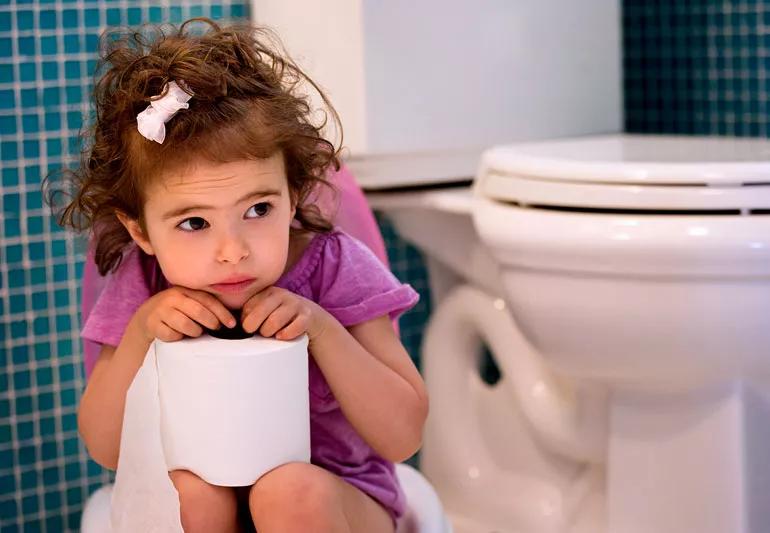Advertisement
Untreated urinary tract infections can lead to permanent kidney damage

You might think that urinary tract infections (UTIs) are a worry only for adult women. But they are a concern for babies and young children, too.
Advertisement
Cleveland Clinic is a non-profit academic medical center. Advertising on our site helps support our mission. We do not endorse non-Cleveland Clinic products or services. Policy
About 3% of girls and 1% of boys will develop a UTI by the time they’re 11 years old, according to the American Academy of Pediatrics (AAP). Uncircumcised boys have slightly more UTIs than those who have been circumcised.
UTIs happen when bacteria get into the urinary system through the urethra (that’s the passageway by which urine travels from the bladder to the outside of the body). Bacteria can get into the urinary tract from the skin around the rectum and genitals. “Holding” urine, improper hygiene or constipation are common causes of UTIs in children, says pediatric urologist Jeffrey Donohoe, MD.
In children, UTIs may go untreated because often the symptoms aren’t obvious to the child or to parents. But UTIs in children need treatment right away to get rid of the infection, prevent the spread of the infection and to reduce the chances of kidney damage.
UTI symptoms include:
It’s important to distinguish between UTIs with fever and those without, Dr. Donohoe says. A young child with a high fever and no other symptoms has a 1 in 20 chance of having a UTI, the AAP says.
“Typically, urinary tract infections with a fever happen when the infection travels to the kidneys or when they are severe bladder infections,” Dr. Donohoe says.
Doctors treat UTIs with fever or UTIs in children younger than age 2 more aggressively, Dr. Donohoe says. That’s because frequent or untreated UTIs can scar a child’s kidneys and cause permanent damage.
Advertisement
Once a UTI clears, it’s helpful to get kids in the habit of using the bathroom every two hours to prevent future infections, Dr. Donohoe says.
Teach your daughters to wipe front to back after going to the bathroom. Also, taking regular baths, drinking plenty of water and even consuming watered-down cranberry juice can help your child avoid a UTI. Drinking fluids helps to flush the infection out of the body.
Cranberry juice has a reputation for curing UTIs. However, traditional, consumer-friendly cranberry juices — which are often a blend of various juices — have not been shown to be particularly effective, Dr. Donohoe says. The purer cranberry preparations can be unpalatable to children because they are tart.
“Cranberry, however, has been proven an effective treatment for preventing urinary tract infections,” Dr. Donohoe says. “It can reduce the likelihood of urinary tract infections in people who are at risk.” Kid-friendly probiotics in chewable form also can help avoid UTIs.
If you think your child may have a UTI, call your pediatrician. A simple test can diagnose if your child has a UTI. To get rid of the infection, your child will need to take antibiotics.
It’s important to continue giving your child the medicine until your pediatrician says the treatment is finished, even if your child feels better. UTIs can return if not fully treated.
Advertisement
Learn more about our editorial process.
Advertisement

Integrating coping skills into your teen’s daily routine helps turn self-care into a lifelong healthy habit

Tantrums and meltdowns are normal, but you can help your child manage their bigger emotions

Talking in the car, resisting the urge to judge and asking specific questions can help rebuild rapport

Yes, it’s safe for babies starting at about 9 months old and can help clear nasal mucus

Local LGBT centers, online directories, visual cues and gender-affirming care or non-discrimination policies can all be helpful resources and cues

From newborn through teen years, your child’s sleep needs will change

Early weight gain can lead to health issues like heart disease, diabetes and cancer

Current research suggests 1 out of every 36 children in the U.S. has ASD — and that’s probably an undercount

Focus on your body’s metabolic set point by eating healthy foods, making exercise a part of your routine and reducing stress

PFAS chemicals may make life easier — but they aren’t always so easy on the human body

While there’s little risk in trying this hair care treatment, there isn’t much science to back up the claims